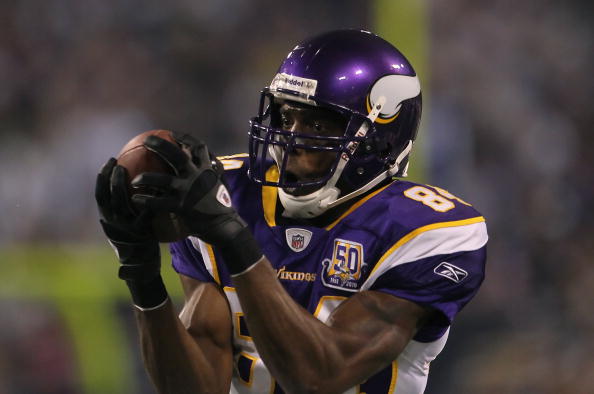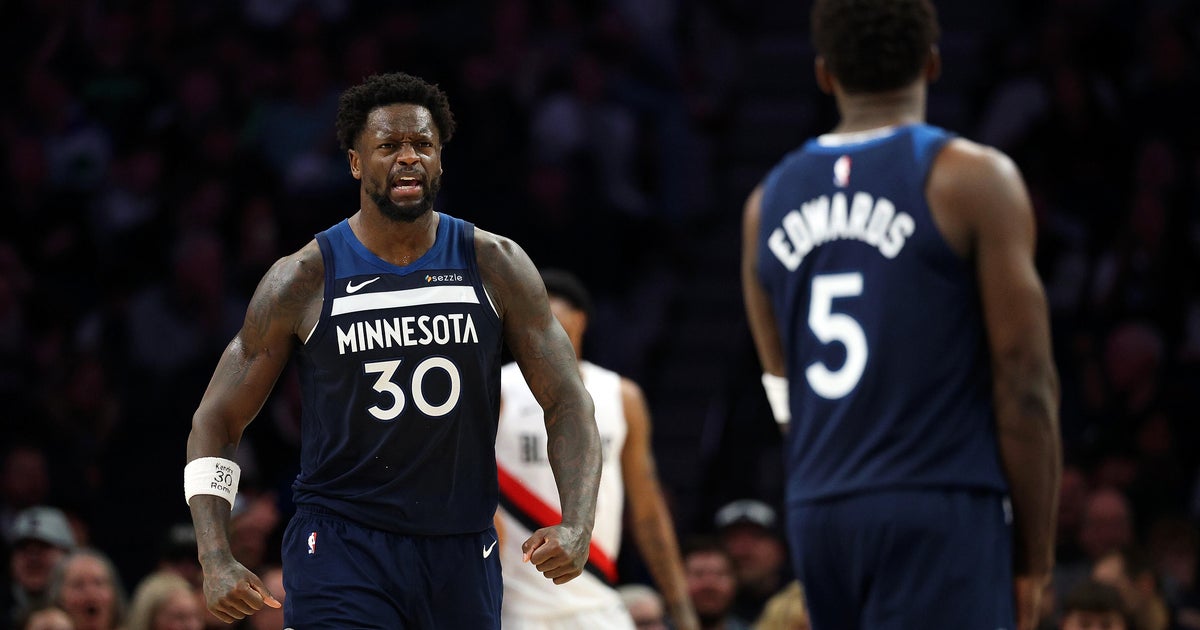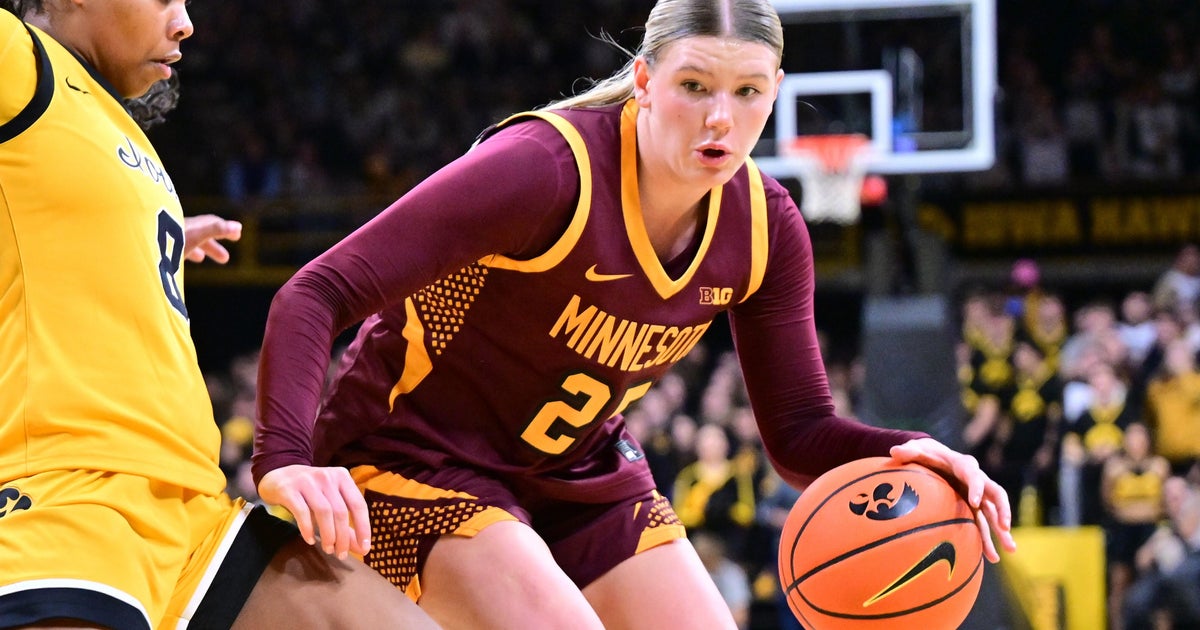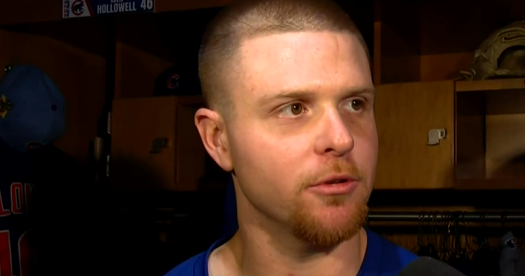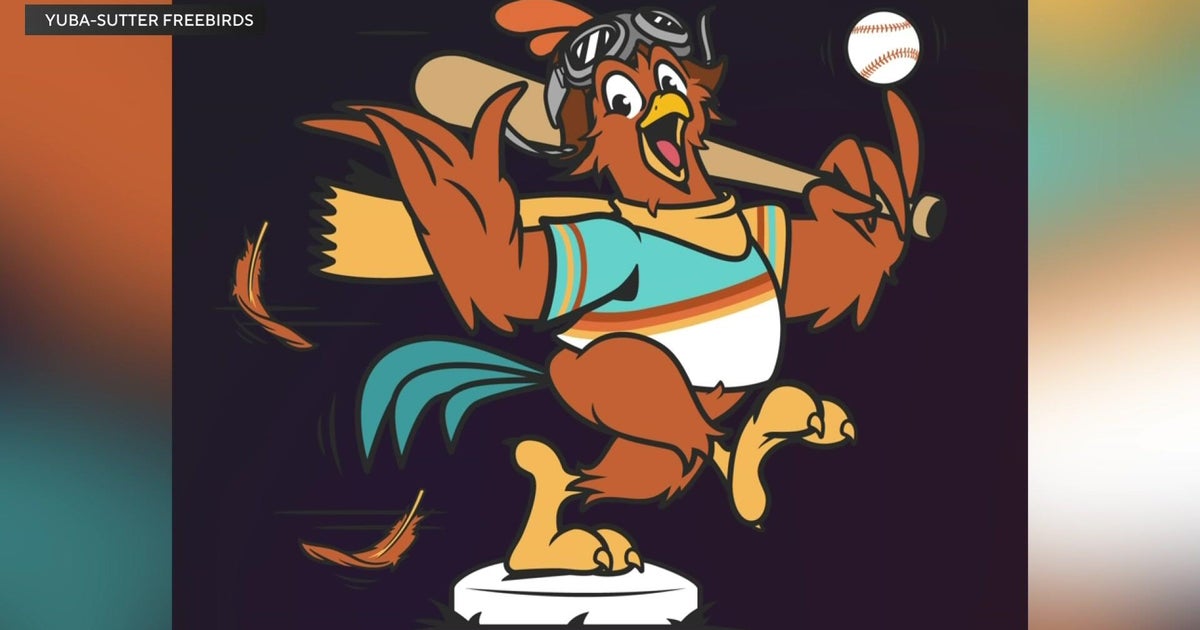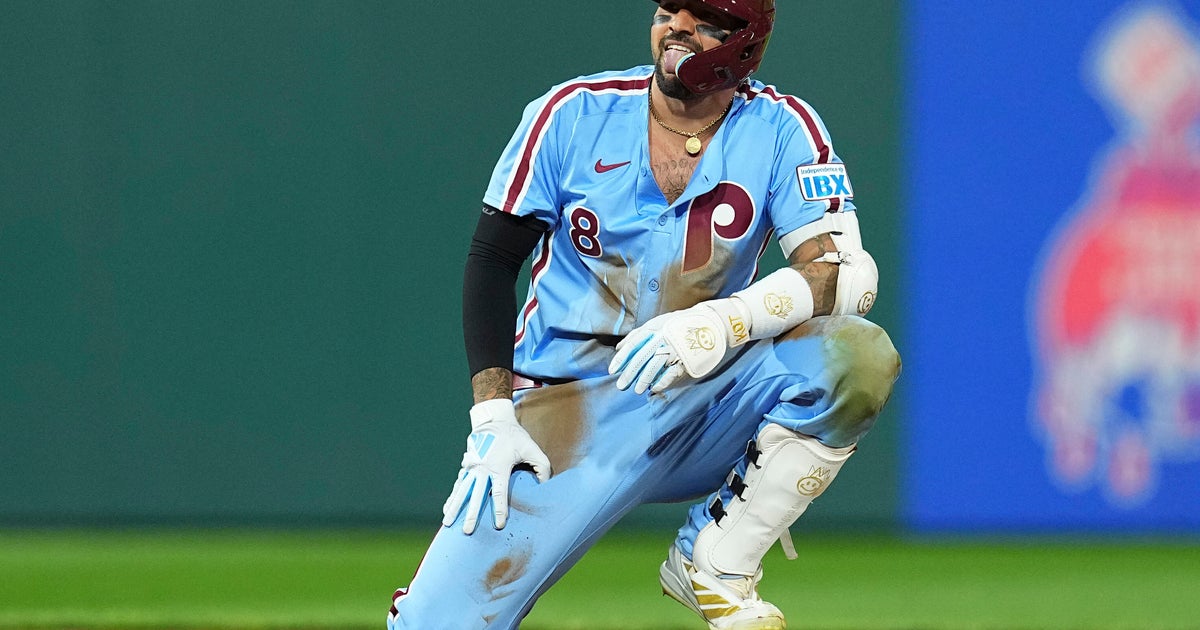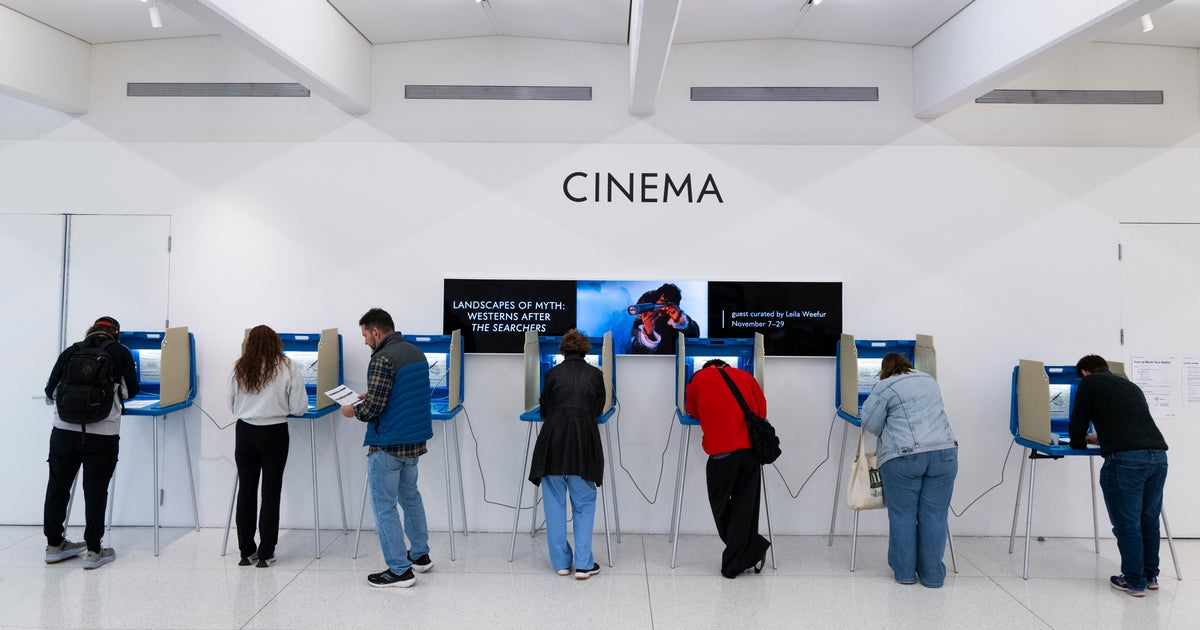5 Successful Vikings Draft Picks At Wide Receiver
The NFL Draft is over, and now teams around the league will host their rookie mini camps this weekend.
For the Vikings, all eyes will be on former Ole Miss wide receiver Laquon Treadwell. He was Minnesota's choice for the No. 23 overall selection in the first round, and many experts had Treadwell tabbed as the best overall receiver in the draft.
It's no secret that the Vikings haven't had a true No. 1 receiver for several years. Will Treadwell become that guy? Who knows, but for the flack the Vikings have taken with failures in drafting a receiver (cough, cough, Troy Williamson, cough, cough), there have been some that worked out quite well.
Here are five drafted wide receivers that were successes for the Vikings, at least while they wore purple.
Percy Harvin (2009, 1st round)
Percy Harvin was drafted out of Florida in 2009 with the No. 22 overall pick. When he was healthy and actually practiced regularly, he was a dangerous weapon in the Vikings offense. In four seasons with the Vikings, he had 280 catches for 3,302 yards and 20 touchdowns. His best season came in 2011, where he had 87 catches for 967 yards and six touchdowns. He was also dangerous in special teams and some running situations. Unfortunately for the Vikings, he became unhappy with the organization for various reasons, demanded a trade and was sent to the Seahawks in 2013.
Randy Moss (1998, 1st round)
There were many teams that passed on Randy Moss in the 1998 NFL Draft due to concerns with his character and an issue with marijuana. Minnesota took him at No. 21, and he turned out to be one of the best receivers in the history of the Vikings. Over his first seven seasons in Minnesota, he had 574 catches for 9,142 yards and 90 touchdowns. There was only one season where he didn't have at least 1,000 receiving yards. While his 1998 season was one to remember, his best statistically speaking was in 2003. He had 111 catches for 1,632 yards and 17 touchdowns.
Sidney Rice (2007, 2nd round)
Sidney Rice was taken in the second round of the 2007 draft, the same year the Vikings took Adrian Peterson No. 7 overall. Rice spent four seasons with the Vikings and was a solid receiver, but it can be argued that having Brett Favre as his quarterback got him to the next level. In four seasons with the Vikings, Rice had 146 catches for 2,129 yards and 18 touchdowns. His best season came with Favre in 2009, where he had 83 catches for 1,312 yards and eight touchdowns. He eventually left for Seattle and has been plagued by injuries since.
Jarius Wright (2012, 4th round)
The Vikings took Jarius Wright out of Arkansas in the fourth round of the 2012 draft. The verdict is still out, but Wright at the very least has had a nice start to his NFL career. In four seasons, he has 124 catches for 1,774 yards and seven touchdowns. His best season so far was two years ago, when he had 42 catches for 588 yards and two scores. Last year, he had 34 catches for 442 yards. Those numbers aren't earth-shattering by any means, but they're not bad for someone who has never been considered the Vikings go-to threat at receiver.
Stefon Diggs (2015, 5th round)
The Vikings might have found a diamond in the rough in Stefon Diggs. They took the receiver out of Maryland in the fifth round last year, and he was the Vikings top receiver as a rookie. He finished with 52 catches for 720 yards and four touchdowns to lead Minnesota when most thought Mike Wallace would be the team's top receiver. And fans love Diggs as his approach seems to be about always wanting to do more and get better. He seems to be just scratching the surface with his potential.
So while guys like Troy Williamson and Cordarrelle Patterson have been disappointments at wide receiver, there have been players who have had success. The Vikings are hoping their investment in Treadwell turns into the franchise finding, at some point, a true top receiver. That also hinges on Teddy Bridgewater improving as a quarterback as as enters his second full season as a starter, and the offensive line giving Bridgewater protection and more time to find open receivers.
